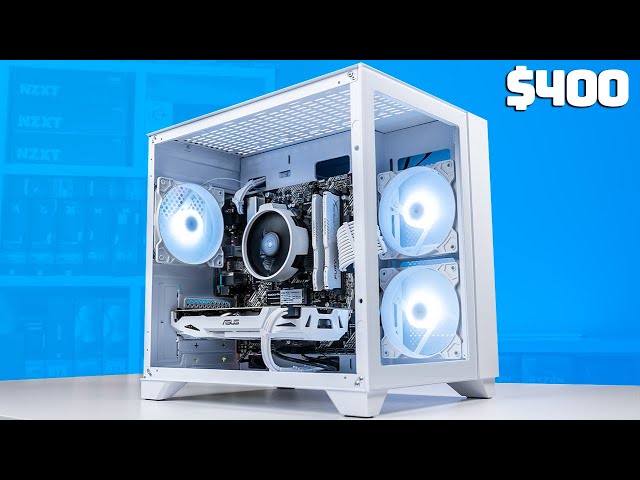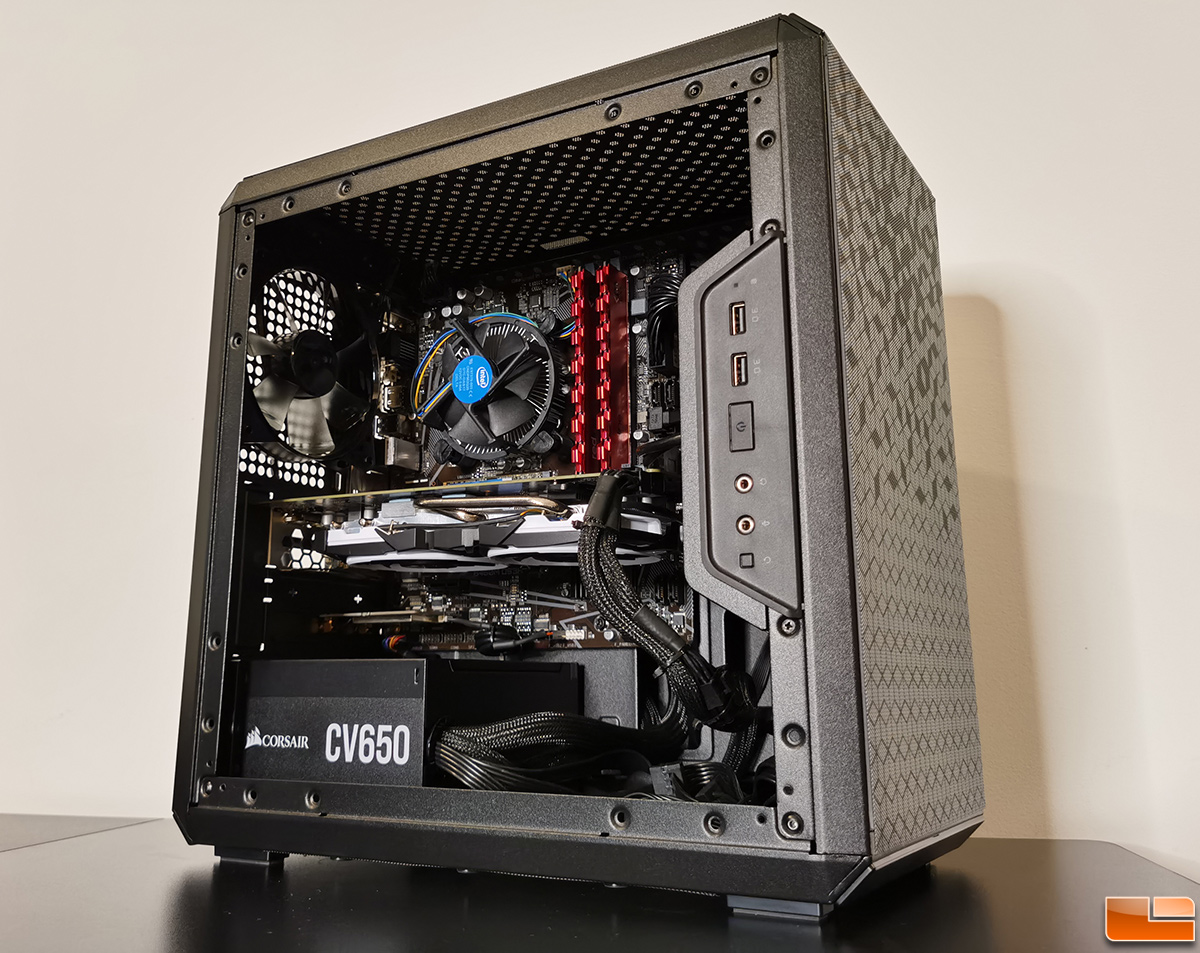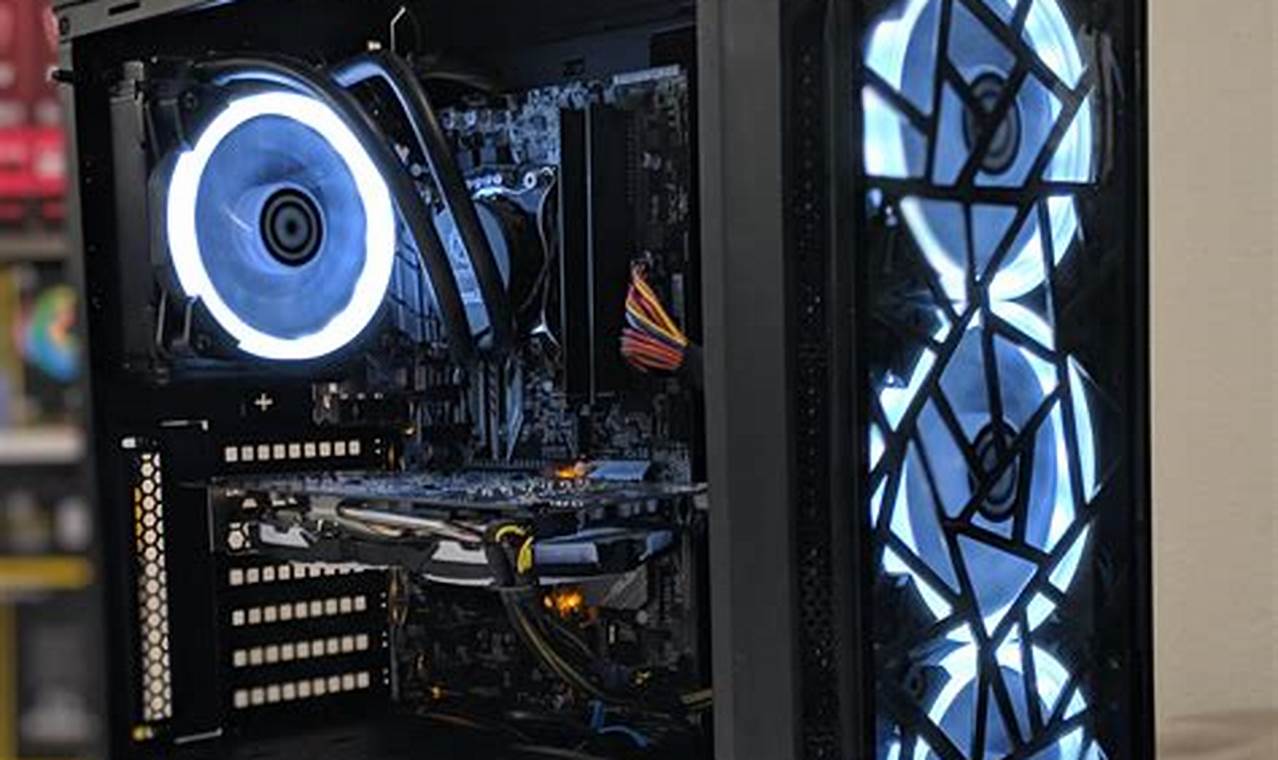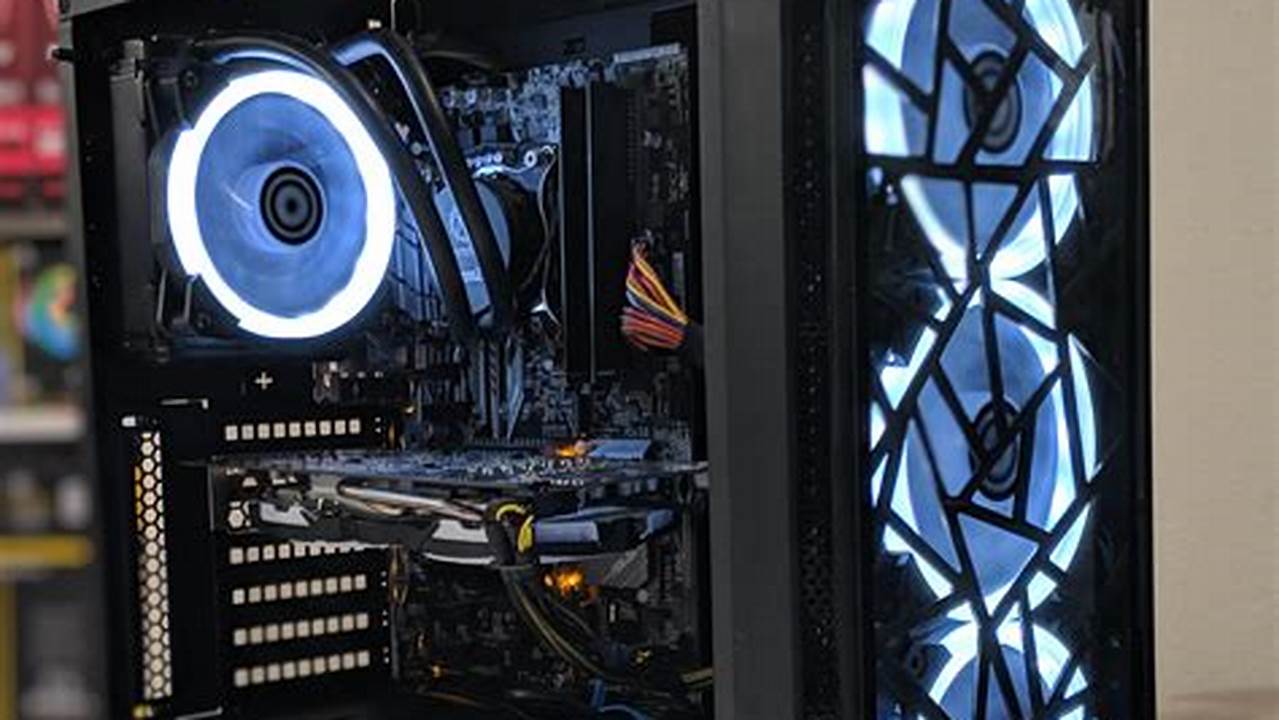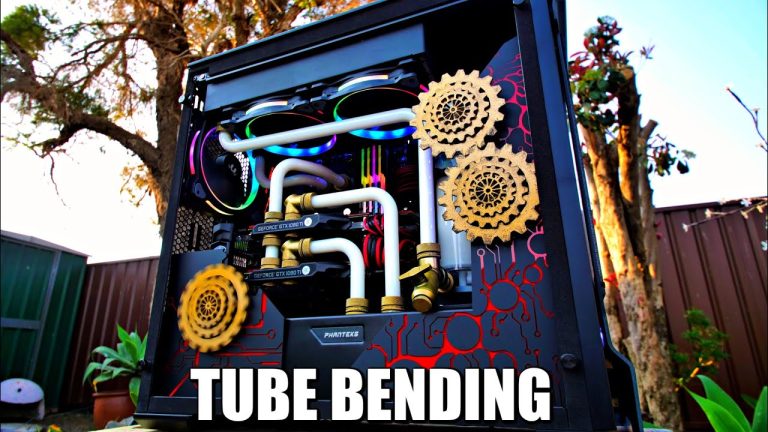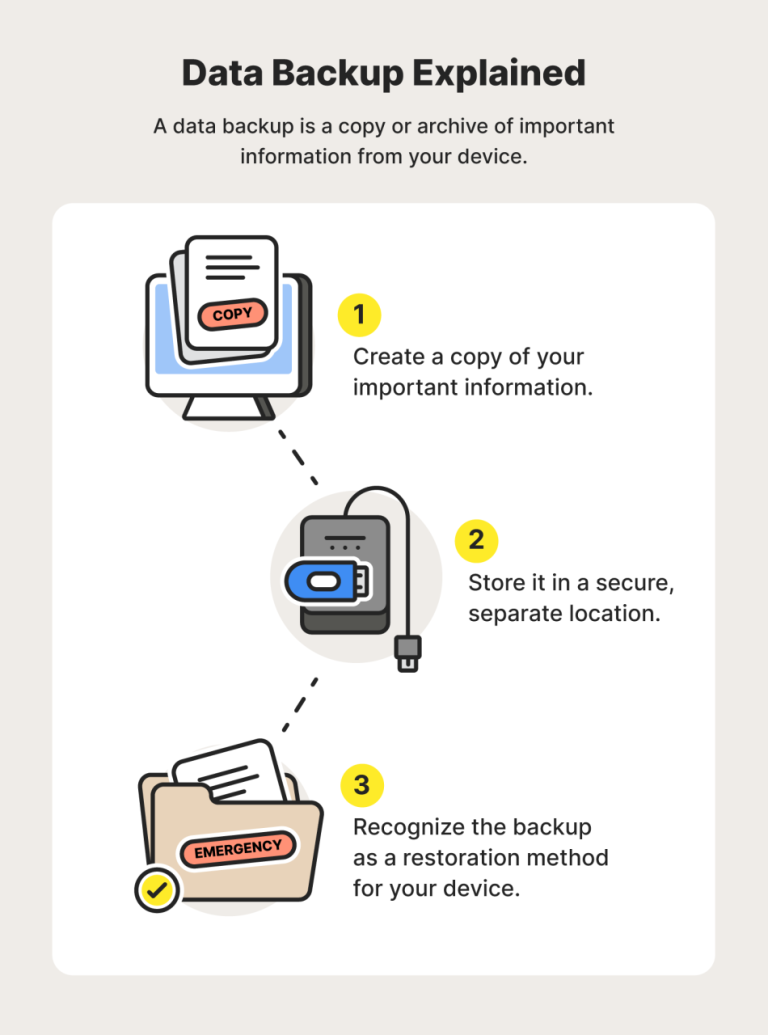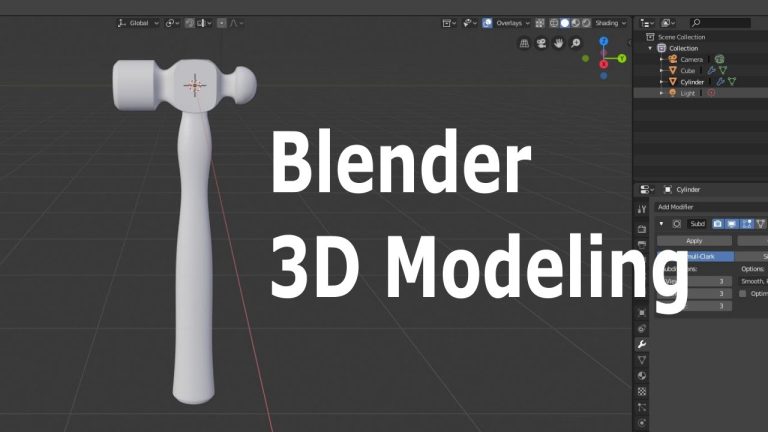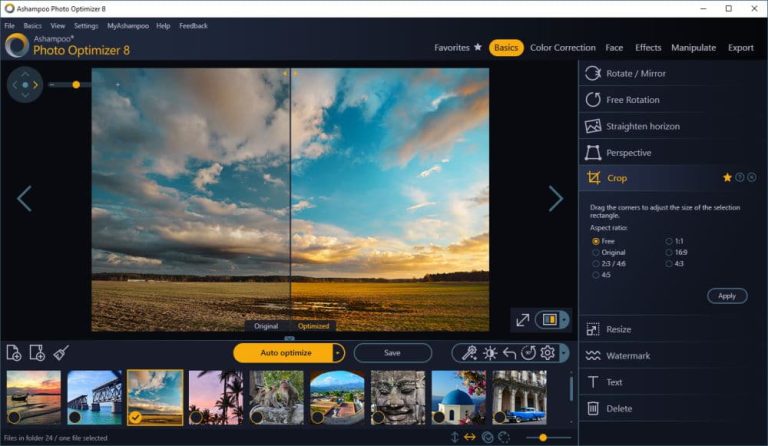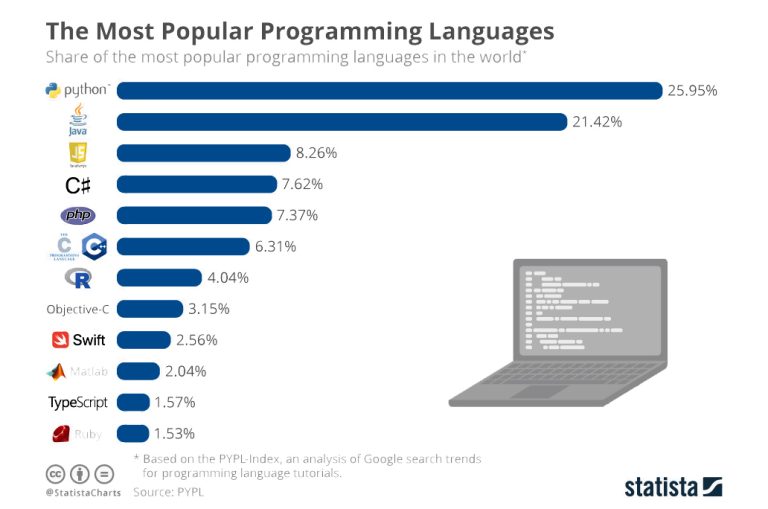How To Build A Budget Friendly Gaming Pc
For gamers on a budget, building a cost-effective gaming PC can seem like an impossible task. However, with careful planning and a little research, it is entirely possible to create a powerful gaming machine without breaking the bank.
In this article, we’ll explore the world of budget-friendly gaming PCs, providing tips and tricks for finding the best deals on components and building a system that meets your needs. We’ll also discuss the latest trends in gaming hardware and provide guidance on how to make your PC future-proof.
Whether you’re a seasoned PC builder or a first-timer, this guide has something for you. So sit back, relax, and let’s get started on building your dream gaming PC on a budget.
How to Build a Budget-Friendly Gaming PC
When building a budget-friendly gaming PC, there are several key aspects to consider:
- Processor
- Graphics card
- Memory
- Storage
- Power supply
- Case
- Operating system
- Peripherals
- Budget
- Future-proofing
Each of these aspects plays a crucial role in determining the performance, cost, and longevity of your gaming PC. By carefully considering each aspect and making informed decisions, you can build a budget-friendly gaming PC that meets your needs and provides years of enjoyment.
Processor
The processor, also known as the CPU (central processing unit), is the brain of your gaming PC. It is responsible for handling all of the calculations and instructions that make your games run smoothly. When building a budget-friendly gaming PC, the processor is one of the most important components to consider.
The speed and number of cores in a processor will determine how well it can handle demanding games. For gaming, it is important to have a processor with at least four cores and a clock speed of 3GHz or higher. However, it is also important to consider the price of the processor. Processors with more cores and higher clock speeds will typically be more expensive.
When building a budget-friendly gaming PC, it is important to find a processor that offers the best possible performance for the price. There are a number of great budget-friendly processors on the market, such as the Intel Core i5-10400F and the AMD Ryzen 5 3600. These processors offer solid performance for gaming without breaking the bank.
Graphics Card
When building a budget-friendly gaming PC, the graphics card is one of the most important components to consider. The graphics card is responsible for rendering the images that you see on your screen, and it plays a major role in determining the overall performance of your gaming PC.
- Type of Graphics Card: There are two main types of graphics cards: integrated and dedicated. Integrated graphics cards are built into the motherboard, while dedicated graphics cards are separate components that are installed in a PCI Express slot. Dedicated graphics cards offer much better performance than integrated graphics cards, but they are also more expensive.
- GPU: The GPU (graphics processing unit) is the heart of the graphics card. It is responsible for performing the calculations that are necessary to render images. The speed and number of cores in the GPU will determine how well it can handle demanding games.
- Memory: The amount of memory on a graphics card will determine how many textures and other assets it can store. More memory will allow the graphics card to render more detailed images and reduce the amount of stuttering that you experience in games.
- Price: Graphics cards can range in price from $100 to $1,000 or more. When building a budget-friendly gaming PC, it is important to find a graphics card that offers the best possible performance for the price.
By understanding these factors, you can make an informed decision about which graphics card is right for your budget-friendly gaming PC.
Memory
When building a budget-friendly gaming PC, memory (RAM) is an important component to consider. RAM is responsible for storing the instructions and data that the CPU needs to access quickly. The amount of RAM you have will determine how many programs and games you can run simultaneously without experiencing slowdowns or crashes.
For gaming, it is important to have at least 8GB of RAM. However, if you plan on playing demanding games or multitasking, 16GB of RAM is a better option. RAM is relatively inexpensive, so it is worth investing in a bit more if you can afford it.
When choosing RAM, there are two main factors to consider: speed and latency. Speed is measured in MHz, and latency is measured in nanoseconds (ns). The higher the speed and the lower the latency, the better the performance. However, faster RAM with lower latency will also be more expensive.
For budget-friendly gaming PCs, a good compromise is to choose RAM with a speed of 3200MHz and a latency of CL16. This will provide good performance without breaking the bank.
Storage
In the realm of budget-friendly gaming PCs, storage plays a crucial role in determining the overall performance and user experience. As games become increasingly larger in size and more demanding in terms of graphical fidelity, having adequate storage space is essential for a smooth and enjoyable gaming experience.
The primary function of storage in a gaming PC is to house the operating system, games, and other applications. When building a budget-friendly gaming PC, it is important to consider both the capacity and speed of the storage device. Capacity refers to the amount of data that the storage device can hold, while speed refers to how quickly data can be read from and written to the device.
For budget-friendly gaming PCs, a solid-state drive (SSD) is a great option for primary storage. SSDs are significantly faster than traditional hard disk drives (HDDs), which can result in faster game loading times and overall system responsiveness. However, SSDs are also more expensive than HDDs. For this reason, many budget-friendly gaming PCs use a combination of an SSD for the operating system and frequently played games, and an HDD for storing less frequently used games and other files.
By understanding the importance of storage and making informed decisions about the type and capacity of storage device to use, you can ensure that your budget-friendly gaming PC provides a great gaming experience without breaking the bank.
Power Supply
When building a budget-friendly gaming PC, the power supply is often overlooked. However, the power supply is a critical component that provides electricity to all of the other components in your PC. If you choose a power supply that is too weak, it can cause your PC to crash or even damage your components.
- Wattage: The wattage of a power supply is measured in watts (W). The wattage of a power supply determines how much power it can provide to your PC. A good rule of thumb is to choose a power supply with at least 500W of power. This will be enough to power most budget-friendly gaming PCs.
- Efficiency: The efficiency of a power supply is measured in 80 Plus certification. The 80 Plus certification indicates how efficiently the power supply converts AC power to DC power. A higher 80 Plus certification means that the power supply is more efficient. This means that it will waste less power and run cooler.
- Modular: A modular power supply allows you to connect only the cables that you need. This can help to reduce clutter and improve airflow in your case.
By choosing a power supply that is the right wattage, efficiency, and modularity, you can ensure that your budget-friendly gaming PC has the power it needs to run smoothly and efficiently.
Case
When building a budget-friendly gaming PC, the case is an important component that often gets overlooked. However, the case plays a vital role in protecting your components, providing proper airflow, and allowing for future upgrades. Here are a few key aspects to consider when choosing a case for your budget-friendly gaming PC:
- Size: The size of the case will determine what components you can fit inside. If you plan on using a large graphics card or multiple storage drives, you will need a case that is large enough to accommodate them.
- Airflow: The airflow of the case is important for keeping your components cool. A case with good airflow will help to prevent your components from overheating, which can lead to performance problems and decreased lifespan.
- Expansion: If you plan on upgrading your PC in the future, you will need a case that has room for additional components. Look for a case with multiple expansion slots and drive bays.
- Price: Cases can range in price from $50 to $200 or more. When choosing a case, it is important to find one that fits your budget and needs.
By considering these factors, you can choose a case that will meet the needs of your budget-friendly gaming PC and provide a solid foundation for future upgrades.
Operating system
An operating system (OS) is a critical component of any computer system, including a gaming PC. The OS is responsible for managing the hardware and software resources of the computer, and it provides a platform for running applications. When building a budget-friendly gaming PC, it is important to choose an OS that is compatible with your hardware and that meets your needs.
The two most popular operating systems for gaming PCs are Microsoft Windows and Linux. Windows is a commercial operating system that is known for its ease of use and wide range of software support. Linux is a free and open-source operating system that is known for its stability and security. Both Windows and Linux have their own advantages and disadvantages, so it is important to choose the OS that is right for you.
If you are new to PC gaming, Windows is a good choice because it is easy to use and there is a wide range of software available for it. However, Windows can be more expensive than Linux, and it is not as customizable.
If you are more experienced with PCs and you are looking for a more customizable and secure operating system, Linux is a good choice. Linux is free to use and there are many different distributions available, each with its own unique features.
Ultimately, the best operating system for your budget-friendly gaming PC is the one that meets your needs and preferences. Consider the factors discussed above and do some research to learn more about the different operating systems available.
Peripherals
Peripherals are an essential part of any gaming PC, and they can make a big difference in your gaming experience. When building a budget-friendly gaming PC, it is important to choose peripherals that are affordable and that meet your needs.
- Mouse: A good gaming mouse is essential for precision and control. Look for a mouse with a high DPI (dots per inch) and a comfortable grip.
- Keyboard: A mechanical keyboard is a great choice for gamers because it provides a tactile and responsive typing experience. Look for a keyboard with anti-ghosting technology to prevent missed keystrokes.
- Headset: A good gaming headset is essential for immersive audio. Look for a headset with surround sound and a comfortable fit.
- Microphone: If you plan on communicating with other players online, a microphone is essential. Look for a microphone with good sound quality and a noise-canceling feature.
By choosing the right peripherals, you can improve your gaming experience and make your budget-friendly gaming PC even better.
Budget
When building a gaming PC, the budget is one of the most important factors to consider. The amount of money you have to spend will determine the components you can buy and the overall performance of your PC. If you are on a tight budget, there are still many ways to build a gaming PC that will meet your needs.
One of the best ways to save money on a gaming PC is to buy used components. You can find used components for sale online or at local computer stores. Another way to save money is to buy components during sales or promotions. Many retailers offer discounts on gaming components throughout the year.
It is also important to prioritize your spending. Decide which components are most important to you and spend your money on those first. For example, if you are a serious gamer, you will want to spend more money on a good graphics card. However, if you are on a tight budget, you can get by with a less expensive graphics card and upgrade it later.
By following these tips, you can build a budget-friendly gaming PC that meets your needs without breaking the bank.
Future-proofing
Future-proofing is a crucial aspect of building a budget-friendly gaming PC, ensuring its longevity and adaptability to future advancements in gaming technology.
- Modular Components: Choosing components that adhere to industry standards, like ATX motherboards and PCIe slots, allows for easy upgrades and replacements, extending the PC’s lifespan.
- Scalable Architecture: Opting for a motherboard that supports multiple generations of CPUs and ample RAM slots provides a foundation for future CPU and memory upgrades, accommodating performance demands as games evolve.
- Cooling Capacity: Selecting a case with efficient airflow and ample fan mounts ensures the system can dissipate heat effectively. This supports future upgrades of power-hungry components without compromising performance or component longevity.
- Power Supply Wattage: Choosing a power supply with higher wattage capacity than the current system’s requirements allows for future upgrades of graphics cards and other power-intensive components without the need to replace the power supply.
By incorporating these future-proofing measures, budget-conscious gamers can build a gaming PC that not only meets their current needs but also provides a solid foundation for future upgrades, ensuring years of enjoyable gaming experiences.
Frequently Asked Questions on Building a Budget-Friendly Gaming PC
This FAQ section addresses common questions and misconceptions surrounding the topic of building a budget-friendly gaming PC. It aims to clarify key aspects and provide practical guidance for readers seeking to create an affordable yet capable gaming machine.
Question 1: What is the most important component to invest in when building a budget-friendly gaming PC?
Answer: The graphics card is crucial for gaming performance, so allocate a significant portion of your budget towards acquiring a capable GPU.
Question 2: How much RAM is sufficient for a budget gaming PC?
Answer: 8GB of RAM is the minimum recommended for a smooth gaming experience, but 16GB is optimal for multitasking and future-proofing.
Question 3: Can I use a pre-built PC to save money?
Answer: While pre-built PCs offer convenience, they often come with inflated prices and limited customization options. Building your own PC allows for greater control over component selection and cost.
Question 4: What is the recommended wattage for a budget gaming PC’s power supply?
Answer: A power supply with a wattage of 500W or higher is advisable to ensure stable operation and accommodate future upgrades.
Question 5: How often should I clean my gaming PC?
Answer: Regular cleaning, every few months or as needed, helps maintain optimal performance by removing dust and debris that can hinder airflow and cause overheating.
Question 6: Is it possible to upgrade a budget gaming PC in the future?
Answer: Most budget gaming PCs allow for future upgrades to components such as the graphics card, processor, or storage, providing a path for enhancing performance as needed.
These FAQs provide valuable insights into building a budget-friendly gaming PC, empowering readers with the knowledge to make informed decisions and create a customized gaming machine that meets their needs and budget.
In the next section, we will explore advanced techniques for optimizing the performance of your budget gaming PC, including overclocking and fine-tuning system settings.
Tips for Building a Budget-Friendly Gaming PC
Building a budget-friendly gaming PC doesn’t have to be a daunting task. By following these tips, you can create a capable gaming machine without breaking the bank.
Tip 1: Prioritize Your Spending: Decide which components are most important to you and allocate your budget accordingly. For gaming, the graphics card and processor are crucial.
Tip 2: Choose Used Components: Buying used components can save you a significant amount of money. Check online marketplaces and local computer stores for used parts.
Tip 3: Take Advantage of Sales and Promotions: Many retailers offer discounts on gaming components throughout the year. Keep an eye out for sales and promotions to save money.
Tip 4: Consider a Micro ATX Build: Micro ATX motherboards and cases are smaller and less expensive than their full-size counterparts. This can help you save money on your build.
Tip 5: DIY Assembly: Building your own PC is not as difficult as you might think. There are many resources available online and in the PC gaming community to help you.
Tip 6: Optimize Your Settings: Once your PC is built, you can further improve performance by optimizing your operating system and game settings.
Tip 7: Overclocking: Overclocking your CPU or GPU can provide a significant performance boost. However, it is important to do so carefully to avoid damaging your components.
Tip 8: Monitor Your Temperatures: Keep an eye on your PC’s temperatures to ensure that it is not overheating. Overheating can lead to performance problems and decreased component lifespan.
By following these tips, you can build a budget-friendly gaming PC that meets your needs and provides a great gaming experience.
In the next section, we will discuss how to optimize the performance of your budget gaming PC through fine-tuning and advanced techniques.
Conclusion
Throughout this comprehensive guide, we have delved into the intricacies of constructing a budget-friendly gaming PC, empowering you with the knowledge and strategies to create a formidable gaming machine without exceeding your financial constraints. Key considerations like prioritizing expenditures, leveraging used components, and optimizing system settings have been meticulously examined.
Remember, building a budget-friendly gaming PC is not merely about assembling components; it’s about making informed choices and utilizing optimization techniques to maximize performance within your budget. By understanding the interconnections between various components and their impact on the overall gaming experience, you can craft a personalized gaming PC that caters to your specific needs.
